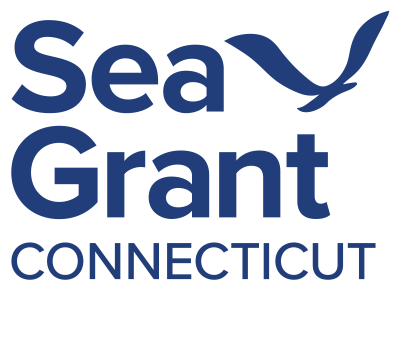Aquaculture
Introduction
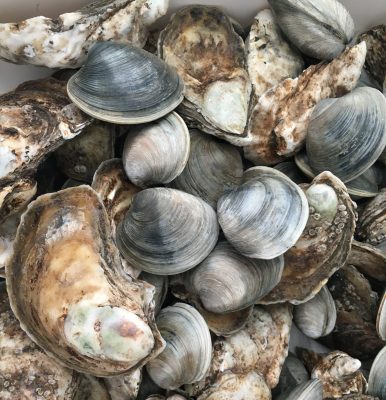 Connecticut is a major producer of molluscan shellfish, including Eastern oysters and northern quahog clams. In addition to an emerging kelp (seaweed) industry, a number of other marine species are being studied for commercial viability including soft shell clams, surf clams and bay scallops. The state also boasts a large recirculating aquaculture facility that produces European sea bass , several operations that grow trout and baitfish in inland ponds as well as businesses that brow hydroponic plants and marine ornamentals.
Connecticut is a major producer of molluscan shellfish, including Eastern oysters and northern quahog clams. In addition to an emerging kelp (seaweed) industry, a number of other marine species are being studied for commercial viability including soft shell clams, surf clams and bay scallops. The state also boasts a large recirculating aquaculture facility that produces European sea bass , several operations that grow trout and baitfish in inland ponds as well as businesses that brow hydroponic plants and marine ornamentals.
To learn more about aquaculture in Connecticut, visit: shellfish.uconn.edu
Vision: thriving coastal ecosystems and communities
The goal of the Connecticut Sea Grant Aquaculture Program is to support environmentally and economically sustainable aquaculture in Connecticut and the Northeast. The program aims to address needs of a growing industry through an integrated program of extension, research, outreach and community engagement.
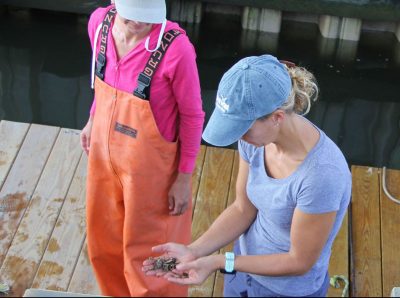
Extension staff work with farmers to improve their livelihoods and the productivity of their aquaculture operations. Sector needs assessments and annual meetings serve as the foundation of Extension programming. Examples of Extension work include one-on-one consultations, training courses and workshops and cooperative farmer research. Extension also facilitates linkages between farmers and individuals or organizations involved in research, education and policy. Finally, public engagement is an important part of the Extension program. While Sea Grant strives to support the responsible development of aquaculture, we are mindful that aquaculture like all businesses must be properly sited to succeed. As such we work with communities to better understand their interests and concerns about aquaculture development.
Fisheries
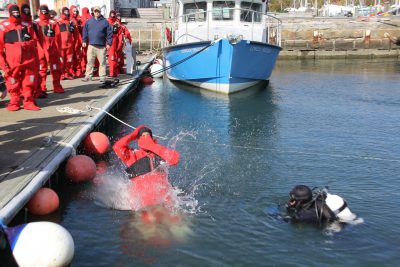
Connecticut's commercial fishing sector is a historically important maritime occupation and economic driver, providing local food and jobs. In 2021, Connecticut landings from Long Island Sound and the Atlantic Ocean totaled 8.5 million pounds with an ex-vessel value of $15.4 million. A changing climate has led to a decline in some species including American lobster and winter flounder in Long Island Sound, while warmer water species, such as black sea bass and blue crab, have extended their ranges north and are becoming more prevalent. Recent CTSG research projects have focused on tautog, black sea bass and American sturgeon. Through the National Sea Grant Sea American Lobster Initiative, the effects of environmental change on the resource and fishery from southern New England to the Gulf of Maine is under investigation. The anticipated installation of wind turbines on designated lease areas in federal waters and the associated transmission cables to bring the power onshore to New York, Connecticut, Rhode Island and Massachusetts, have raised concerns related to restricted/lost access to important fishing grounds and questions about navigational/operational safety and liability, while providing some an opportunity for contractual work. Promoting a culture of safety among commercial fishermen through regular safety training opportunities is an important role for CTSG and its partners.
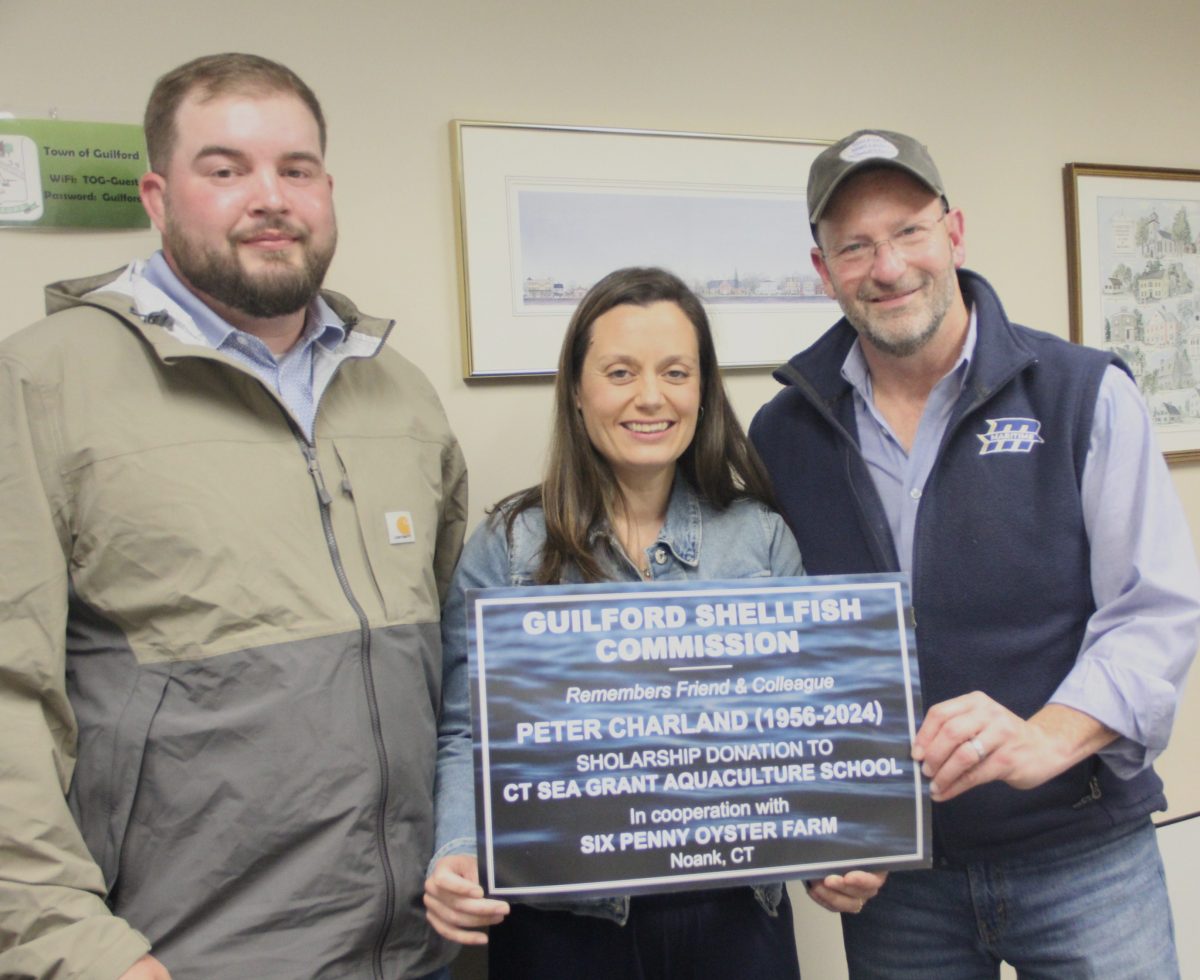
SHUCKS interns get hands-on training as farmers of the sea
This summer, Danielle Calini and Brendon Goulette will advance their career goals as recipients of the SHUCKS internship at Sixpenny Oyster Farm in Noank. Now in its second year, the paid internship gives hands-on training in aquaculture through part-time work at Sixpenny.
[Read More]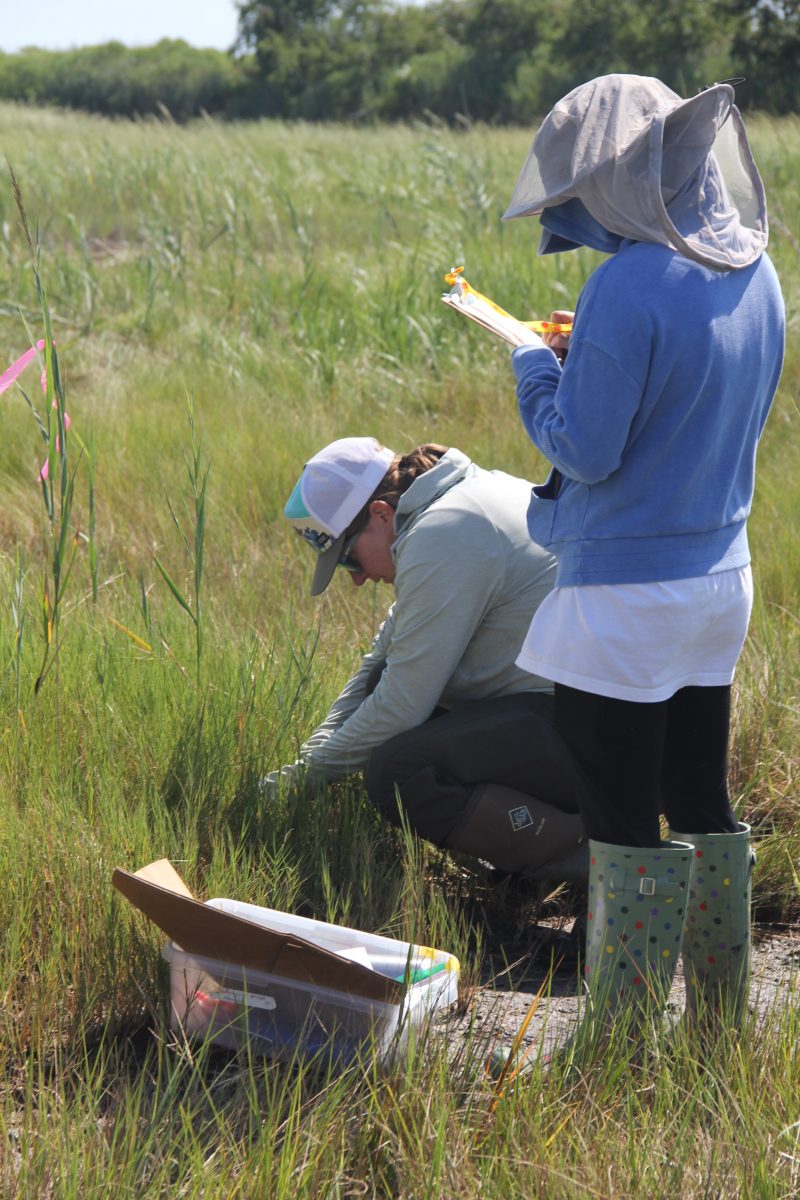
Major research investment focuses on key aspects of LIS ecosystem
In the largest Long Island Sound research award in the history of the collaboration between CTSG, NYSG and the Long Island Sound Study, 13 projects have been selected that will improve understanding of factors impacting several fish species, shellfish, water quality and restoration of salt marshes.
[Read More]
UConn doctoral student awarded NOAA-Sea Grant fellowship
Halle Berger, a UConn marine sciences doctoral student, is one of 10 early career scientists awarded the 2024 National Marine Fisheries-Sea Grant Fellowship that provides support for critical fisheries research. Her research focuses on sea scallops, one of the most valuable fisheries in the United States.
[Read More]For More Information
Contact:
Tessa Getchis, Senior Extension Educator
Michael Gilman, Assistant Extension Educator
Zachary Gordon, Assistant Extension Educator
Clayton McGoldrick, mobile seaweed lab technician
Nancy Balcom, Extension Program Leader
Robert Pomeroy, Extension Specialist
Aquaculture Resources
Locations offering direct sales of fresh shellfish and other seafood
UConn Extension Resource Guide for CT Shellfish and Aquaculture
Impacts of COVID-19 Pandemic on the Connecticut Aquaculture Industry - Preliminary Report
Seaweed Cultivation: CTSG Outreach and Extension Activities
CT Aquaculture Essential Knowledge flyer
Connecticut Aquaculture Funding Opportunities & Research Needs 2019 PowerPoint presentation
Connecticut Shellfish Restoration Story Map
Northeast Aquaculture Management Guide, edited by Tessa Getchis
Department of Agriculture Bureau of Aquaculture information on Vibrio
Connecticut Aquaculture Video Series
Publications
View our fisheries publications.
View our aquaculture publications.
View the Connecticut Seafood Survey report.
Fisheries Resources
Locations offering direct sales of fresh fish, shellfish and other seafood
